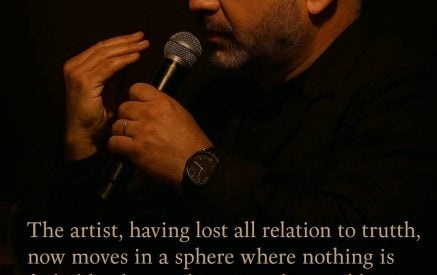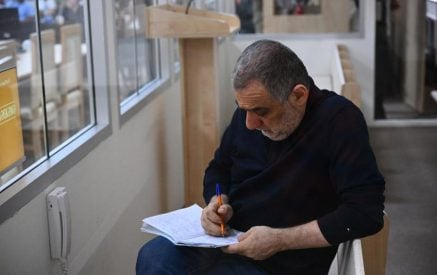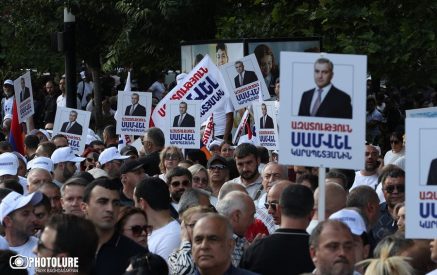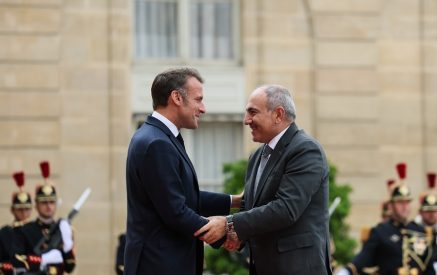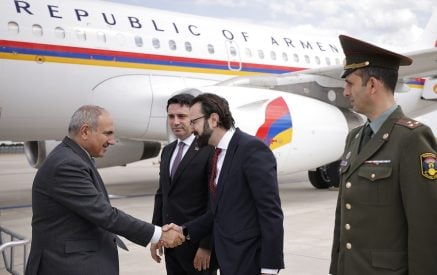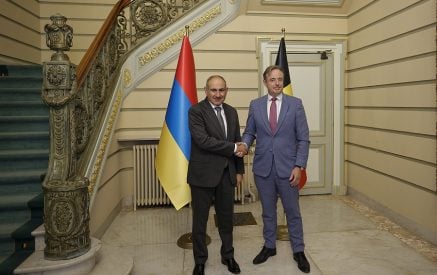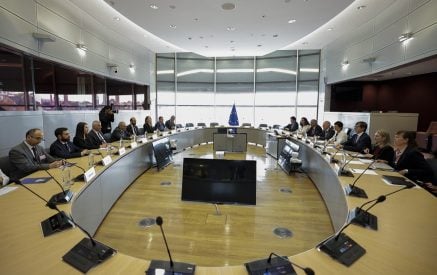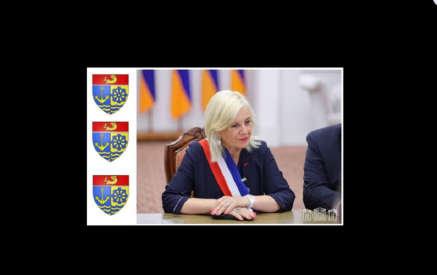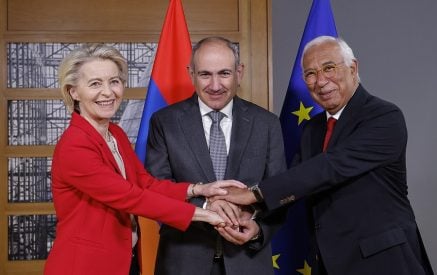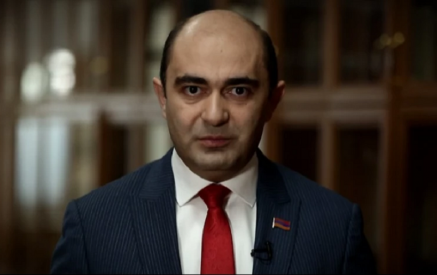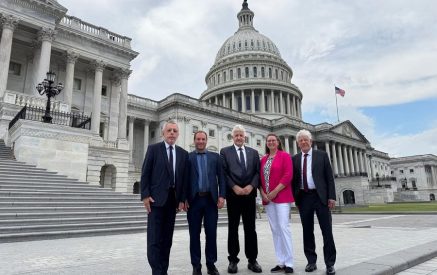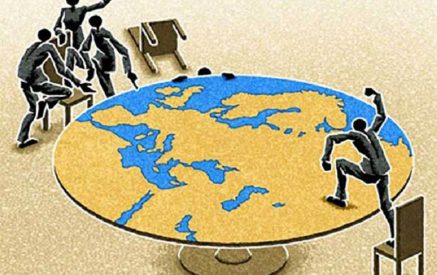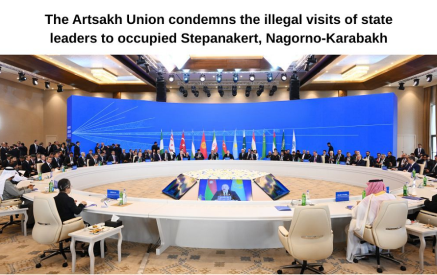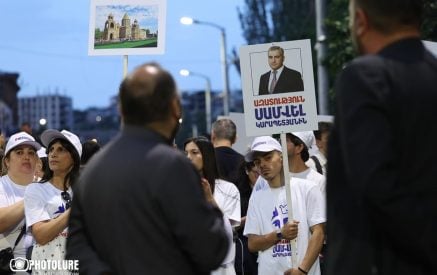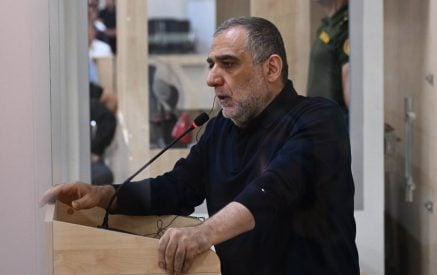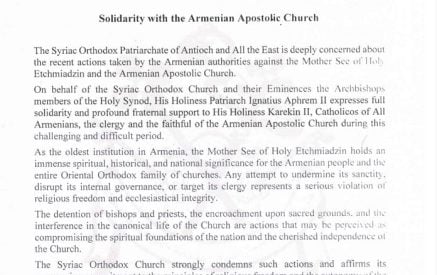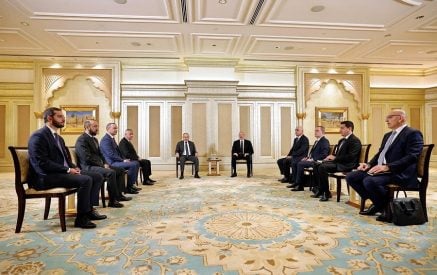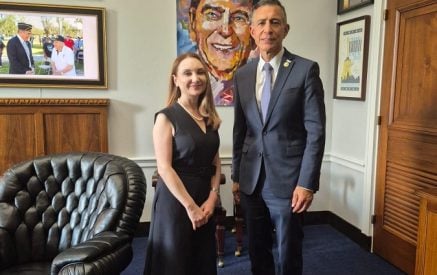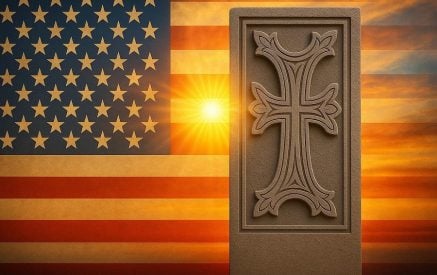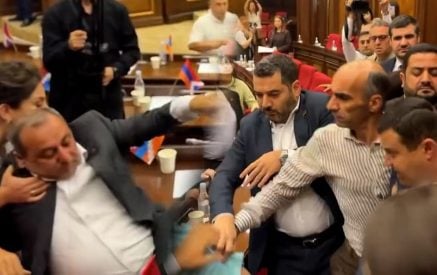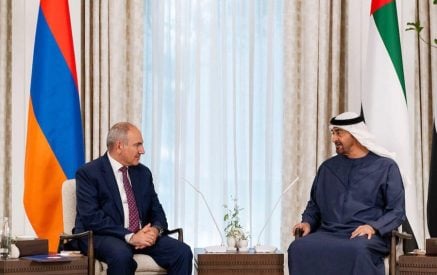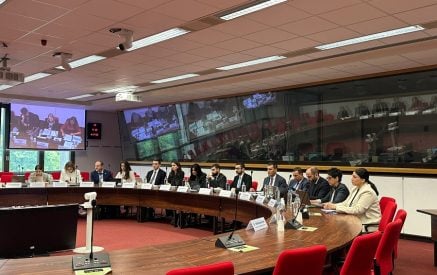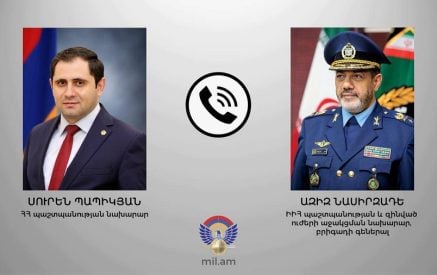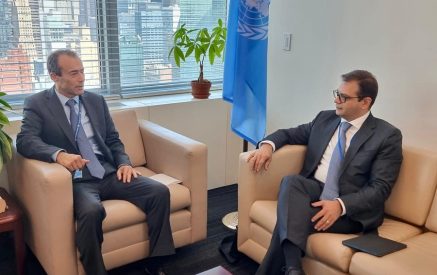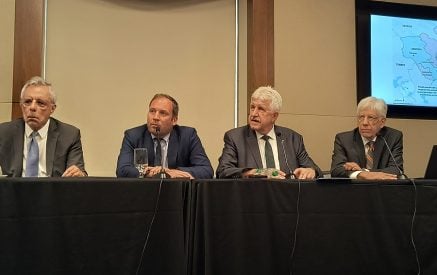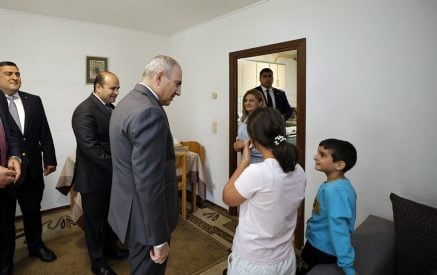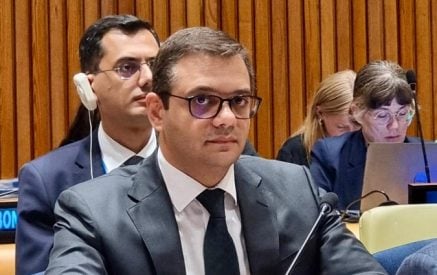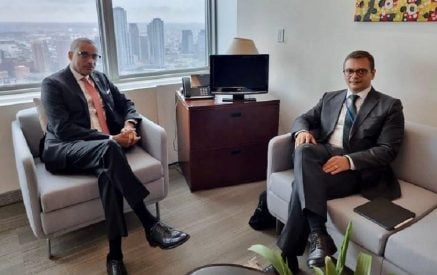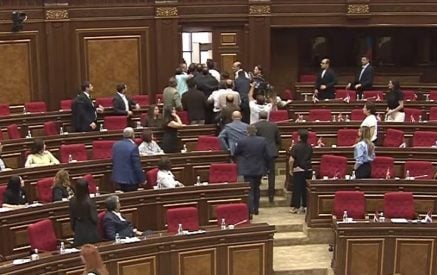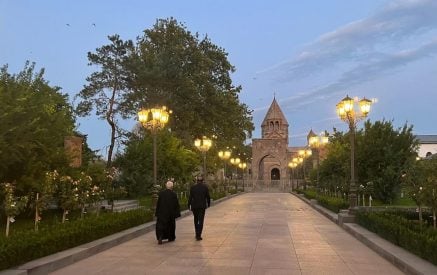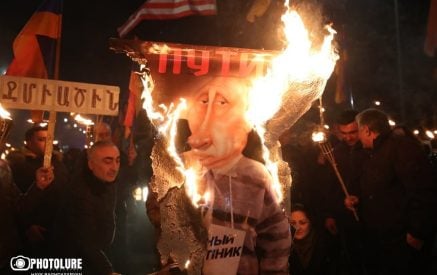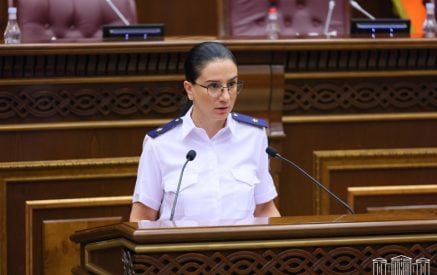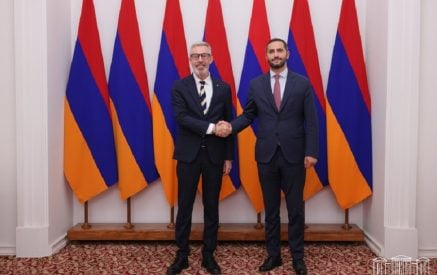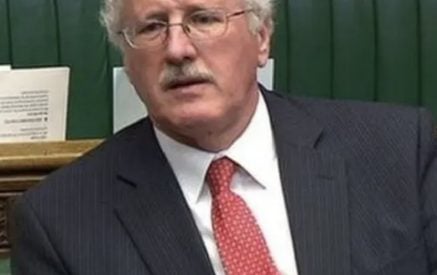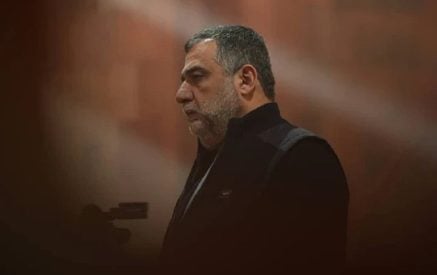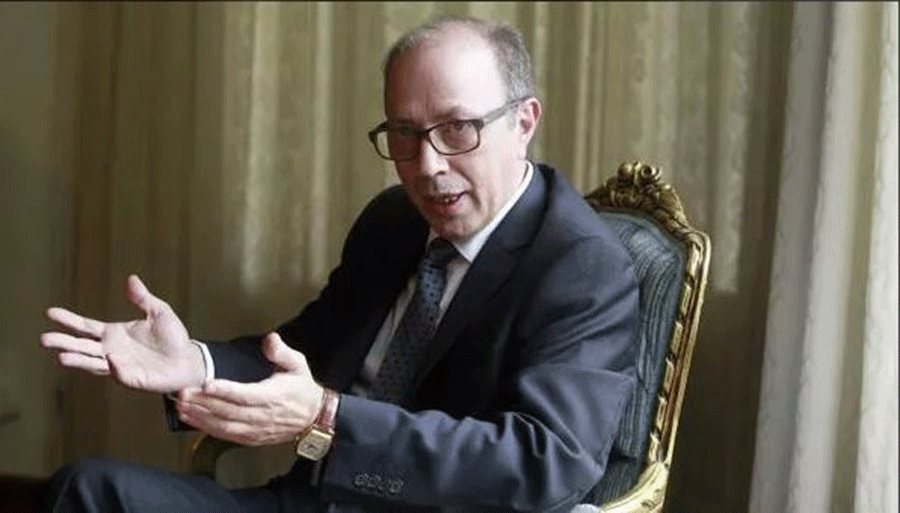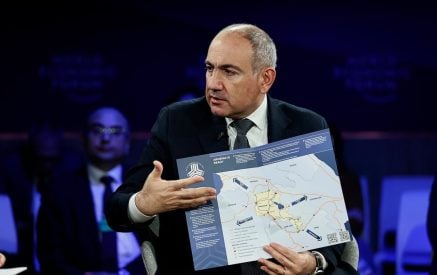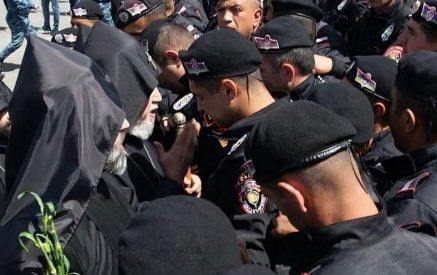Ara Aivazian
2020 was a turning point for Armenians, dividing our perception of time into two different realities, just as in 1915 –– before and after the war. The war and its aftermath have affected every aspect of our lives, deepening our sense of insecurity and confronting us with bleak prospects for the future of our nation, as it did a century ago.
The national awakening and state building process that began in 1991 and was a source of inspiration and unity for Armenians in Armenia, Artsakh and the Diaspora for the last 30 years, in a blink of an eye, was on the verge of collapse. Yet, instead of searching for a way out of the current geopolitical impasse, overcoming the dire consequences of war, and laying the groundwork for a just and dignified peace, the prevailing political narrative in these critical times revolves around the question of who is to blame for the current state of affairs, embodied in the relentless and exhausting finger-pointing of opposing camps. In this regard, it is useful to make some brief remarks on the relationship between the concepts of war and peace.
Read also
Throughout human history, wars have been a constant presence and remain the most effective tool for interaction between states. World history testifies that through organized violence — wars — the political map of the world has evolved with the emergence of new states and the disappearance of old ones. Wars were not waged simply for victory in warfare, but primarily to impose one’s will on the enemy and tailor a peace that best suits the interests of the winning side. This is precisely what Prussian military strategist Carl von Clausewitz had in mind when he said, “war is merely the continuation of policy with other means.” In other words, unless the war is a desperate exercise of self-defense, the purpose of the war is to attain a better peace.
History often shows that victory in warfare does not necessarily lead to a better peace. Napoleon is believed to have won 50 (some historians claim 53) of 58 major military campaigns. Yet, despite being one of the most prominent military commanders and politicians of all time, he lacked a strategic vision for the ultimate goals of the use of force. This led him to lose his “strategic moment”, and he was eventually overthrown. There are many similar examples in world history.
In addition, the cessation of hostilities and military operations do not signify the end of a war, unless a new status quo is accepted and the conflicting parties sign an agreement proclaiming an era of “new peace”. At this stage, the role of diplomacy is essential and just as important as the role of the military. To paraphrase an Afghan proverb, “The war is over – now the real fighting begins,” because the outcome of the negotiations that follow military action is a key determinant of the peace that is eventually established.
Modern history draws lessons from past war experience and the legacy of peacemaking. Henry Kissinger prioritized the victorious states’ sense of self-restraint around peace talks that ended the Vietnam War. He stated that, “in dealing with the defeated enemy, the victors designing a peace settlement must navigate the transition from the intransigence vital to victory to the conciliation needed to achieve lasting peace.” It is a formula that ensured a durable, almost century-long peace, with only a few exceptions, in Europe after the Congress of Vienna in 1814-1815, in contrast to the mistakes of the Paris Peace Conference and the Treaty of Versailles after the Great War, where Germany was subjected to full capitulation. These mistakes became a harbinger for, and one of the main catalysts, of the Second World War.
Understanding each war requires contextualization. In the current context, the use of force and the threat of force — realpolitik — has once again become the dominant method in international relations. Power politics has consistently swept away the remnants of the post-Cold War status quo and previous security architecture.
While not justifying the fatal mistakes of the Armenian side, Nagorno-Karabakh was just another link in the spiraling logic of the use of force to impose a new world order in the currently expanding world disorder. To withstand the deadly challenges we face today, it is essential to accept the geopolitical reality that surrounds us, as well as our misdeeds and miscalculations, without bias.
Every war ends with peace, but unfortunately, any peace is cyclically interrupted by war. As Immanuel Kant aptly noted, “eternal peace is available only in the grave.” Unlike the victorious powers of 1814, Azerbaijan’s leader does not hide his vision of the so-called peace that he threatens Armenia with, and which is music to the ears of the international community.
In the early 1860s, British Prime Minister Benjamin Disraeli prophetically remarked after meeting with Prussian ambassador to France Otto von Bismarck: “Beware of this man, for he says what he thinks.” In the next decade, the Iron Chancellor, with his vision of realpolitik, changed the fate of all of Europe. Intoxicated by the success of the use of force, Azerbaijani President Ilham Aliyev is betting on further exercises in uncontrolled power politics. He combines his unlimited claims to Armenia and Artsakh with open challenges and threats to important international players. However, unlike the Great Prussian, he has clearly lost the notion of self-restraint.
History could be a thoughtful guide for the leader of Azerbaijan, as would Kissinger’s warning that, “success is often so elusive that statesmen pursuing it rarely bother to consider that it may pose its own penalties.”
The difficult and seemingly hopeless situation in which Armenia currently finds itself can and should be changed. However, it must be understood that in today’s realpolitik world, power politics will not be restrained by any international guarantees or democratic values adhered to by official Yerevan. As U.S. President Theodore Roosevelt warned a hundred years ago, “what a nation could not protect by its own power, could not be safeguarded by the international community.” The use of force will be futile unless it can cause irreparable damage to the enemy. Armenia still has the capacity to consolidate internal and external power that is sufficient to neutralize the ongoing aggression of its neighbor.
Rather than dismantling the previous security architecture, which has proven insufficient over time, it should be modified and expanded by attracting new partners in bilateral and multilateral formats united by a shared perception of actual threats and security concerns. Only under this condition will it be possible to prevent new wars or aggression and ensure that Armenia and its allies become a force that other forces cannot ignore.
Unfortunately, Armenia is steadily giving up its negotiating positions. As Kissinger pointed out, a country’s bargaining power depends on the options it is perceived to have. By closing off options, adversaries can more easily calculate their moves. Winston Churchill warned against this in a 1926 letter:
“Short of being actually conquered, there is no evil worse than submitting to wrong and violence for fear of war. Once you take the position of not being able in any circumstances to defend your rights against aggression, there is no end to the demands that will be made or to the humiliation that must be accepted.”
War and peace are integral driving forces of human history. Despite all the vicissitudes of fate, mankind has not been able to eradicate state-organized violence, war, as the most potent of influences upon the course of events. Thucydides, the founder of political realism, predicted 2,500 years ago that wars would be part of the life of peoples as long as “fear, honor and interest” were the strongest and most stable motives in the interaction of states. There are two rival maxims on war:
- War is too important to be left to the generals;
- War (and we might add, peace, because making an enduring peace is more challenging than making war) is too important to be left to the politicians.
In these fateful times, our country needs people who will develop a grand strategy to purposefully use all the assets of the state and nation. This includes political and military leaders, who can work toward achieving a just, dignified and lasting peace.



